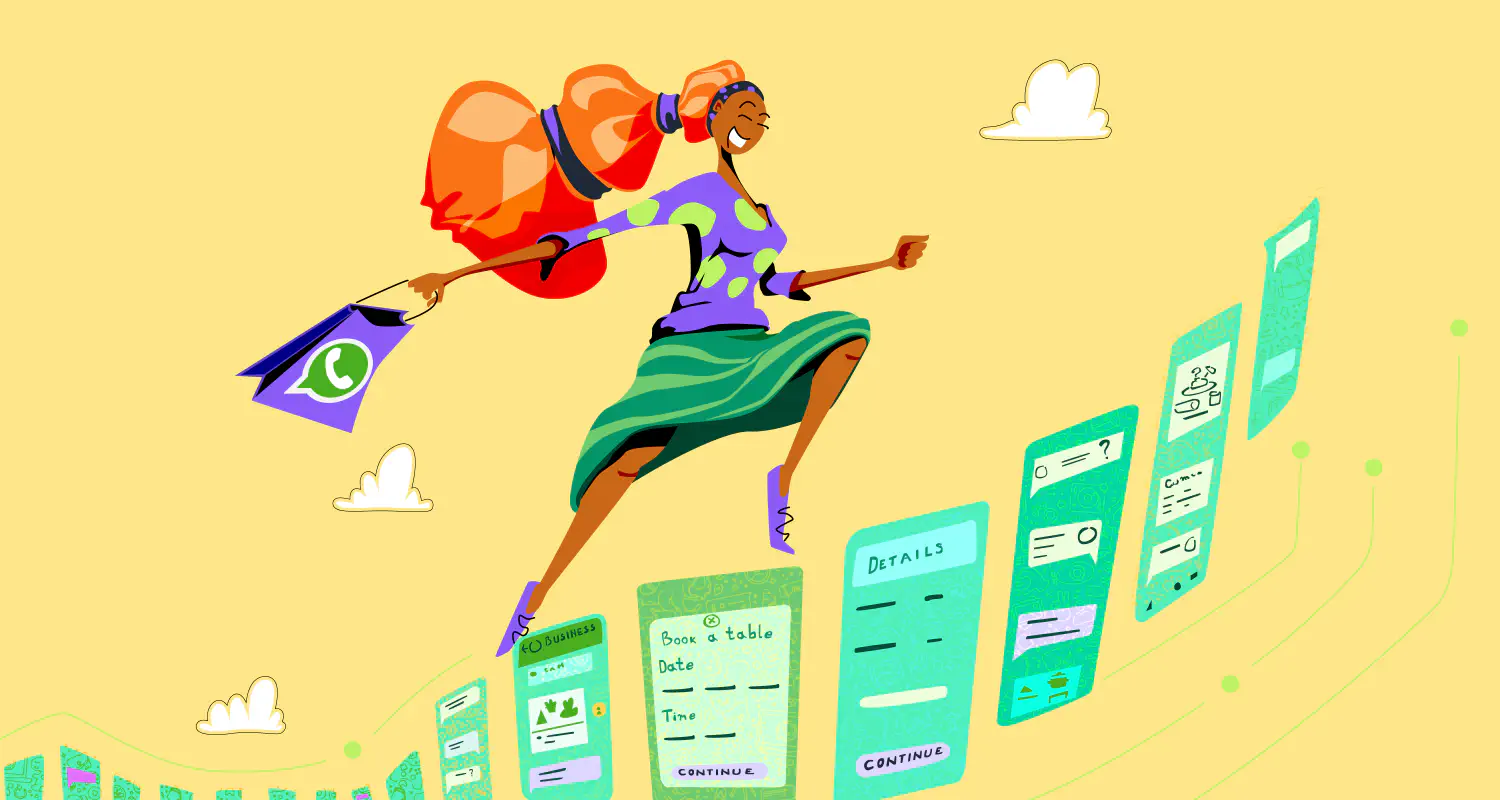Introducing WhatsApp Flows: Everything You Need to Know
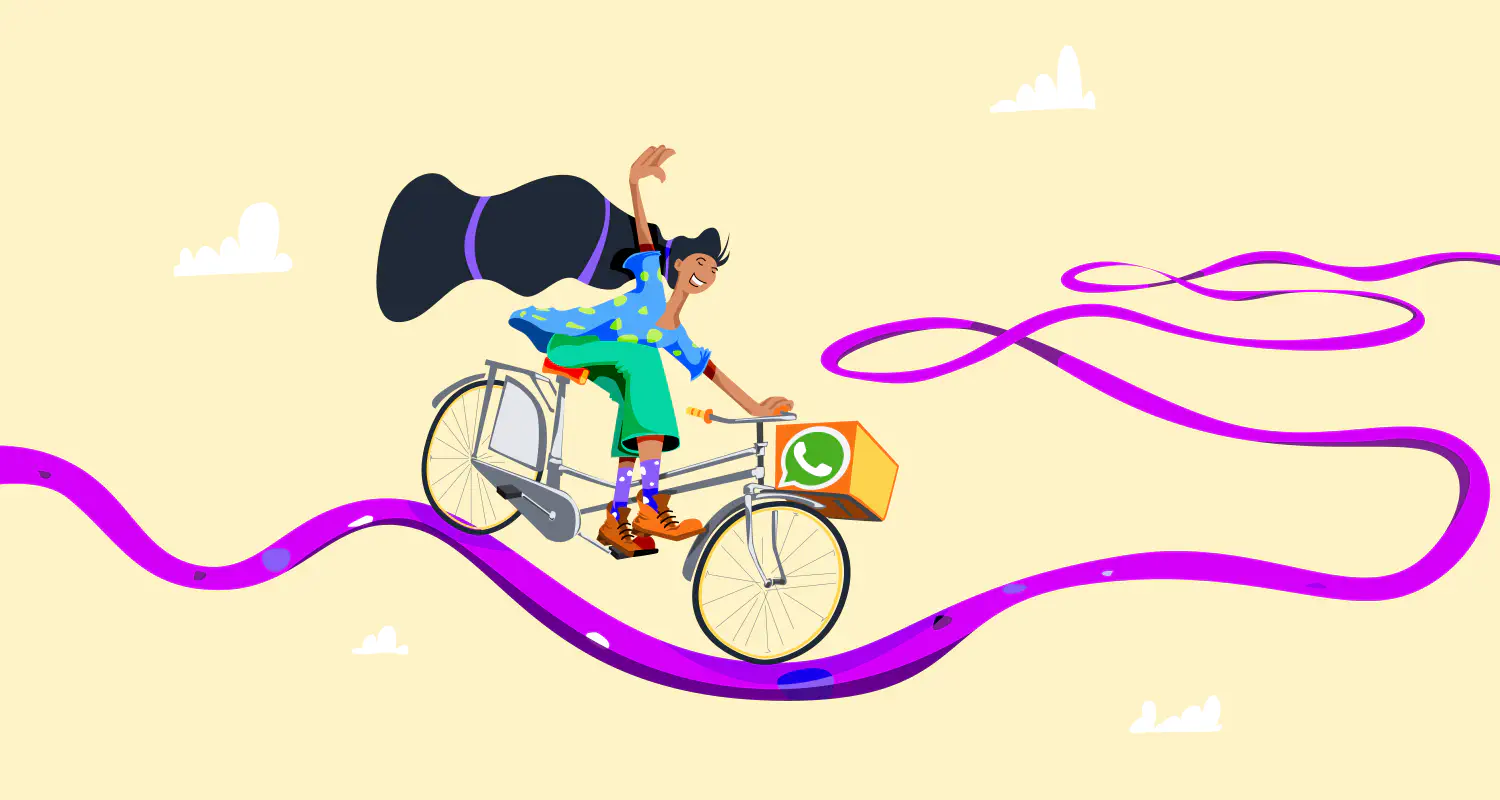
Just a few hours ago, Meta announced the release of “WhatsApp flows”. This is not just another feature but a powerful tool designed to transform how businesses and customers interact over WhatsApp.
With its dynamic possibilities, WhatsApp flows is sure to make communication smoother, faster, and better overall. In this article, we will delve into its benefits and the potential ripple effects on the communication landscape. Let’s dive in!
What are WhatsApp flows?
WhatsApp flows is an advanced feature designed specifically for WhatsApp Business API users. It allows businesses to design interactive and automated conversation pathways within WhatsApp. These pathways can facilitate everything - from allowing people to book a table in their favorite restaurant to guiding users through complex processes, all without ever leaving the app.
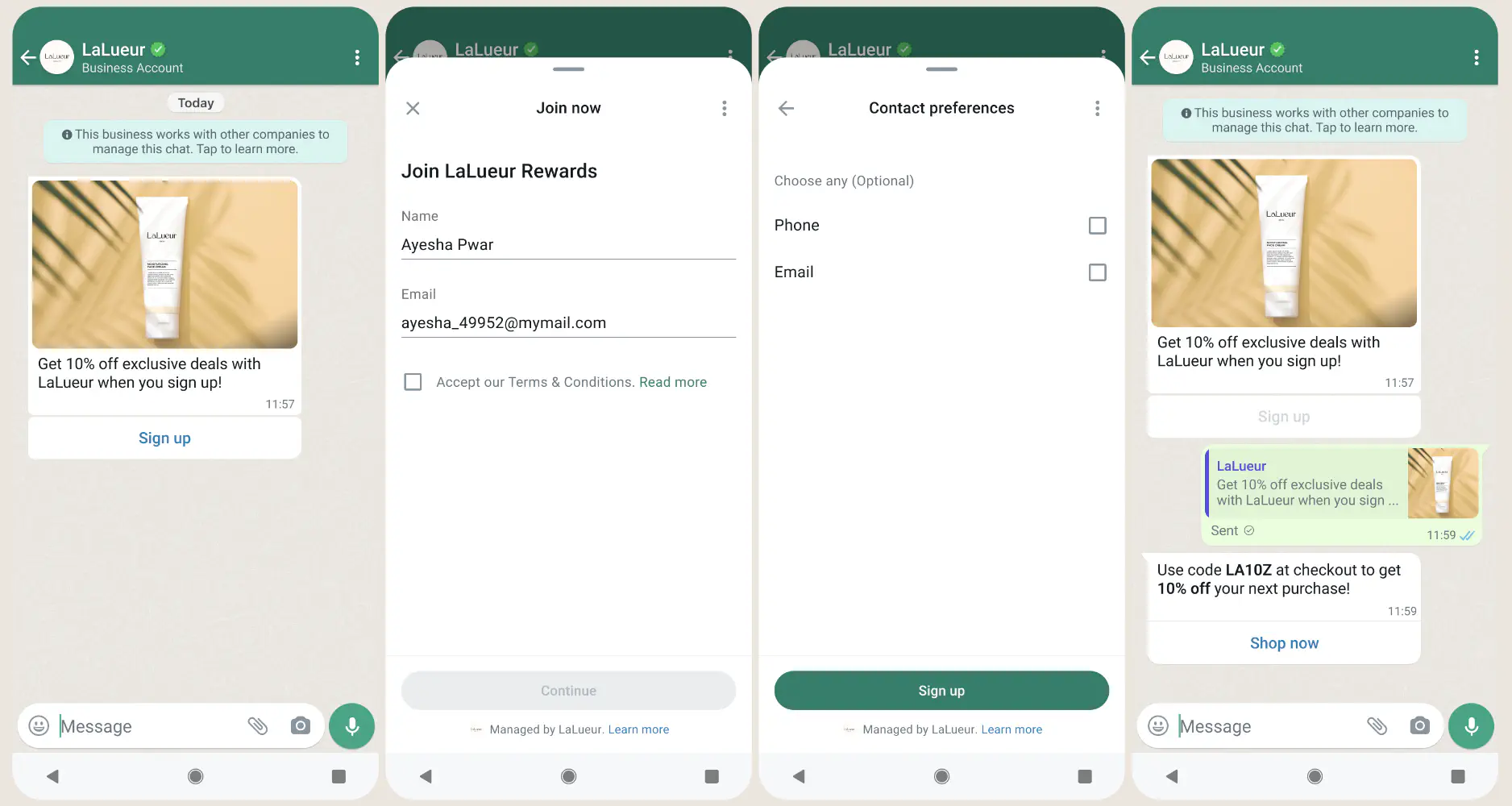
Source: Meta.
In essence, WhatsApp flows are user interfaces that you can build and send to your customers in a WhatsApp chat. They don’t have to go to your website, they don’t need to click on a link and go somewhere else; it all happens inside the chat itself.
For now, if you want to create your own flow, you’d need to use the drag-and-drop builder in WhatsApp Manager. However, we see great value in adding this incredible feature to Rasayel, so stay tuned. Soon, we will release our own Flow builder within our platform.
Check out our recent post for a step-by-step guide on how to create Flows using WhatsApp Manager.
Key features
WhatsApp flows stands out due to its flexibility and adaptability, allowing you to craft user-centric interactions. Here are some of its key features:
Interactive screens
At the core of WhatsApp flows are screens, which are the interactive pages users navigate. Starting from the initial screen upon tapping a CTA, your customers can weave through a sequence of screens - each tailored for specific interactions until the flow reaches its conclusion.
Layouts
Layouts provide a cohesive structure, making sure components are well-organized and easy for users to interact with. They define how components are presented within a Flow.
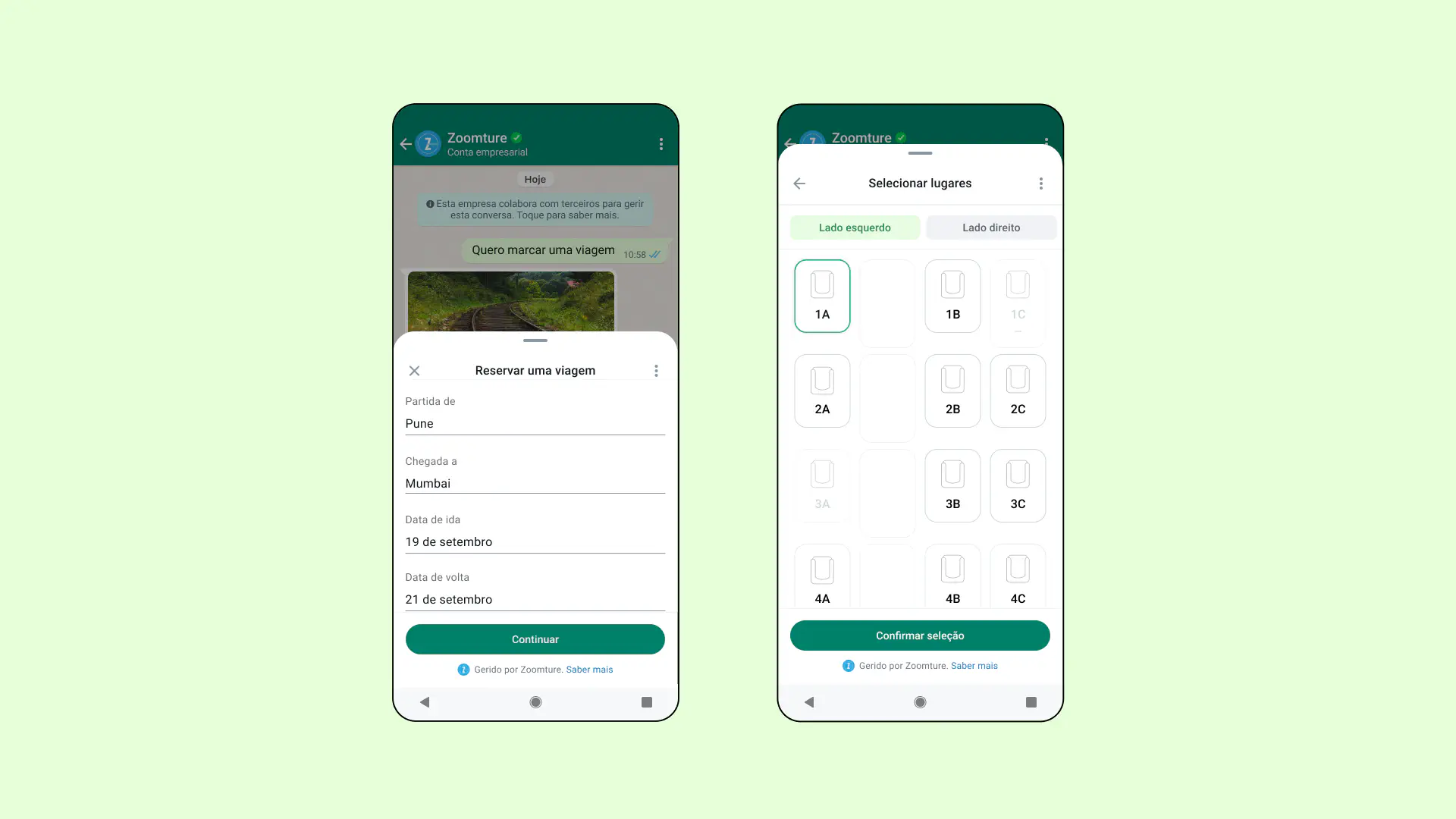
Source: Meta.
Dynamic components
Components are the building blocks of every Flow. They serve dual purposes – displaying information and gathering user input.
- Display components: Engage users with a mix of text, images, and embedded links.
- Input components: These are crucial for two-way interactions. Users can type responses via Text Inputs, choose from predefined options with Dropdowns, Checkboxes, or Radio Buttons, consent with Opt-ins, and even select dates through Date Pickers.
Versatile integration
WhatsApp flows is not limited to one type of message. Whether it’s a proactive outreach via Business Initiated Messages, regular interactions, or even triggered as part of a chatbot flow, WhatsApp flows ensures every conversation is efficient and engaging.
Maximum number of components and screens
You can add up to 8 components on every screen. A multiple-choice question is considered one component, regardless of the number of choices.
The maximum number of screens per WhatsApp Flow is also 8.
3 Benefits of using WhatsApp flows
Let’s explore the benefits this feature brings across various aspects of business:
Sales
- Instant interaction: When potential customers have queries, there’s no need for them to sift through websites or await email replies. With WhatsApp flows, they can directly engage with your business on WhatsApp, expressing their preferences or needs.
- Personalized experience: Based on the user’s responses in a flow, you can offer personalized product recommendations or solutions, offering a more personalized shopping experience, which can lead to increased conversion rates.
Customer support
- Data gathering: With Flows, you can easily collect feedback, understand issues, or even gather essential data like order IDs, making the resolution process quicker and more efficient.
Customer engagement
- Efficient engagement: Whether you’re sending out a new product launch notification, a feedback form, or an event sign-up, with WhatsApp flows, everything is laid out seamlessly, making the process more streamlined and accessible.
Impact of WhatsApp flows on your business
Flows can turn WhatsApp into a versatile platform for businesses across virtually all sectors. It offers powerful functionalities that can redefine how businesses interact with their customers. Let’s dive deeper into the benefits it brings to distinct industries:
eCommerce
- Personalized shopping experience: With WhatsApp flows for eCommerce, customers can actively customize products and receive personalized recommendations, ensuring they get exactly what they desire for a truly personalized shopping experience.
- Real-time order management: From inquiries about products to checking order status, customers can now get instant responses, fostering trust and reliability. This ultimately leads to increased customer satisfaction and a reduction in order returns.
- Feedback and after-sales support: A channel for customers to provide feedback, request returns, or get support, all within the chat interface. This ensures post-purchase engagement and ensures a seamless customer experience.
Event management
- Seamless registration process: Potential attendees can use WhatsApp flows for events to register without the need for external forms or websites.
- Engagement and updates: Automated reminders and notifications keep attendees informed about event details, changes, and other essential information.
- Feedback collection: Post-event, gather insights and feedback, helping improve future events.
Restaurants
- Instant table booking: With WhatsApp flows for restaurants, you can let customers book, change, or cancel their tables directly through chat. Plus, you can offer them the option to share any special dining needs or dietary restrictions in advance.
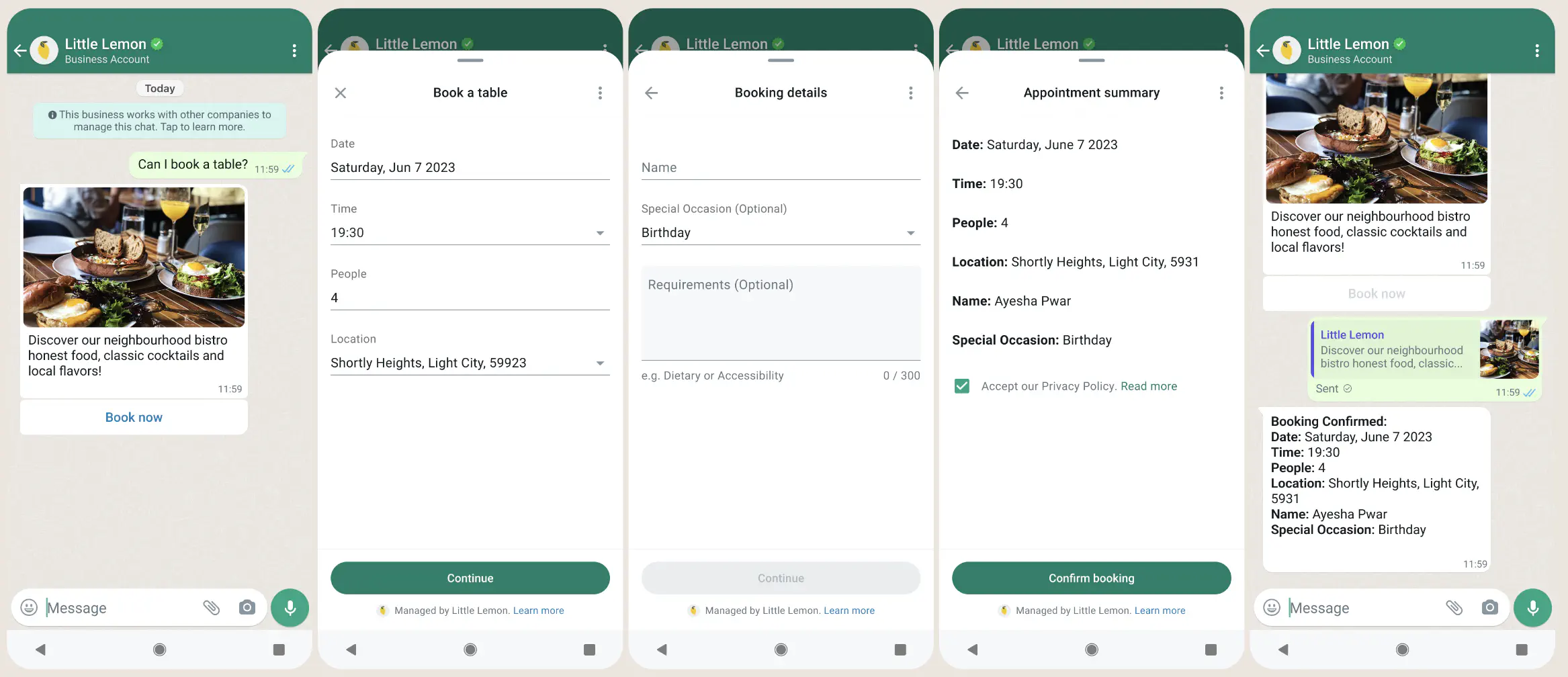
Source: Meta.
Healthcare
- Booking appointments: Patients can now book their doctor visits easily with WhatsApp flows for healthcare. They don’t need to make phone calls or use complicated websites. Once they book, they get a quick confirmation. This lets them know right away when their appointment is.
Insurance
Eliminate paperwork and errors: You can use WhatsApp flows for insurance to collect necessary information for quotes, applications, or updates directly via WhatsApp.
Smooth consultations: Allow customers to easily schedule appointments with agents or advisors through WhatsApp. Flows make getting consultations simpler, which boosts customer happiness.
Valuable insights through feedback: WhatsApp flows also provide a convenient platform for customers to offer feedback on services, the claims process, and their overall experience.
Conclusion
WhatsApp flows, fresh off the press, is already making waves and demonstrating its transformative potential for businesses everywhere. Even in these early stages, the sheer depth of its capabilities is evident.
The key benefits of WhatsApp flows are undeniable: businesses can now engage customers more dynamically, gather essential data effortlessly, and provide a highly personalized experience—all within the world’s most popular messaging app. By embedding interactive tools directly into the chat, Flows minimizes distractions and friction, resulting in more efficient and productive interactions.
In the near future, as we delve deeper into this feature and explore its applications across various industries, we’ll highlight even more ways businesses can harness the power of Flows tailored to their unique needs. Stay tuned for in-depth analyses tailored to specific business sectors.
But for now, if you’re a business owner or stakeholder, it’s the perfect time to dive in and explore how WhatsApp flows can elevate your customer engagement strategy. Don’t just be a spectator; be a part of this groundbreaking evolution in digital communication. Embrace the Flow!
Frequently Asked Questions
WhatsApp flows is an interactive feature for WhatsApp Business API users. It enables businesses to create automated conversation pathways within the app, streamlining customer interactions. Key elements include customizable screens for user navigation, dynamic components for information display and user input, and adaptability across different message types.
To use WhatsApp flows, businesses need an active, verified account on the WhatsApp Business API platform. Creation and management of Flows are facilitated through WhatsApp Manager.
WhatsApp flows function through interactive screens navigated by users. Starting with a Call-to-Action, they offer a series of screens, each designed for specific interactions, guiding users seamlessly to the flow’s conclusion.
WhatsApp flows can be used for diverse purposes, including lead generation, appointment booking, sign-ups, customer support, and feedback collection, enhancing business-client interaction.
Key benefits of WhatsApp flows include instant customer interaction, personalized experiences based on user input, efficient data gathering for customer support, and streamlined engagement processes.
To create a WhatsApp Flow, utilize the drag-and-drop builder in WhatsApp Manager. This allows adding and customizing screens and components to tailor the flow as needed.
Flow conversations are counted under the existing pricing model - based on the number of conversations.
WhatsApp flows is ideal for businesses using the WhatsApp Business API, suitable for various industries like e-commerce and services, aiming to enhance customer interaction through an interactive chat experience.

Tarek previously worked as a product engineer at Intercom. Prior to that, he travelled to live and work in numerous places around the world.
He’s now living in a small fishing town in rural south Ireland, and enjoys the nature around.He climbs hills whenever he can, and enjoys the rare, but lovely Irish sunny days.

